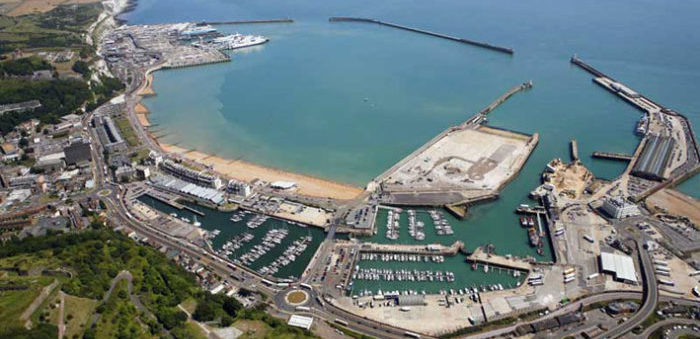Ahead of the final arrangements for Brexit, the British Ports Authority said that it may take some before the industry can see what implications the final deal will have for ports.
BPA’s Chief Executive, Richard Ballantyne, noted that currently there is uncertainty regarding the potential future cross-border processes.
[smlsubform prepend=”GET THE SAFETY4SEA IN YOUR INBOX!” showname=false emailtxt=”” emailholder=”Enter your email address” showsubmit=true submittxt=”Submit” jsthanks=false thankyou=”Thank you for subscribing to our mailing list”]
He added that the prospect of UK leaving the EU could be relatively non eventful for ports that are handling bulk loads or containers. In this sector, exiting processes and systems could be easier to adapt.
Nevertheless, adapting to new customs and regulatory controls at both UK and EU, RO-Ro ports could could face more challenges. These ports handle tens of thousands of both driver accompanied and unaccompanied HGV vehicles and trailers travelling between the UK and the EU each day. Thus, BPA believes that the potential for new time consuming and costly processes for freight operators using this sector is a daunting prospect.
In addition, BPA is also uncertain about what the agreement will mean in terms of the regulatory environment under which ports operate. Based on what a final deal might look, it could lead to more opportunities for the UK to review certain rules. These could include the Ports Services Regulation, and they might be able to establish a planning and consenting regime which could drive port development.
On the other hand, the association is hopeful that the agreement will include ‘some kind of lasting solution which would rule out the need to introduce new customs and border checks for UK-EU trade’. However, there still could be some way to go before ports and freight operators will know what trading environment would look like.
The political situation being as such means that there are still several stages that the proposals will need to pass through. This means hauliers and freight operators using the UK’s network of ‘Roll-on Roll-off’ ports such as Dover, Holyhead, Immingham and Portsmouth will continue to be unsure what the post-Brexit border processes will look like.






























































